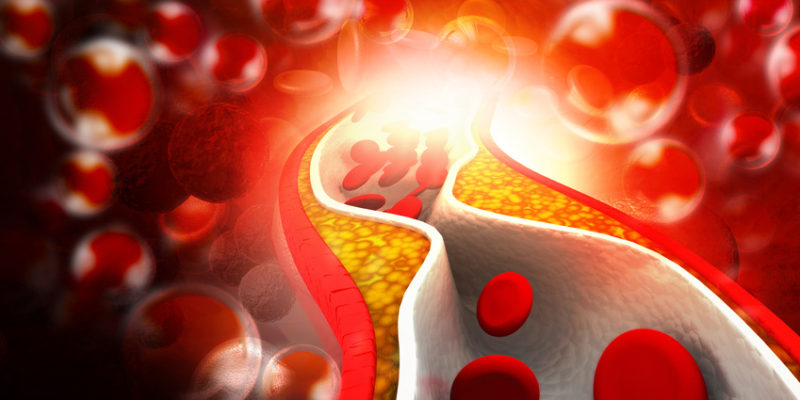High-Dose Menaquinone-7 Supplementation Reduces Cardiovascular Calcification in a Murine Model of Extraosseous Calcification (Scheiber D, et al.)
Cardiovascular calcification is prevalent in the aging population and in patients with chronic kidney disease (CKD) and diabetes mellitus, giving rise to substantial morbidity and mortality. Vitamin K-dependent matrix Gla protein (MGP) is an important inhibitor of calcification.

To that end, researchers designed a study with the goal of evaluating the impact of high dose Vitamin K2 as menaquinone-7 (MK-7) supplementation (100 μg/g diet) on the development of extraosseous calcification in a murine model. Calcification was induced by 5/6 nephrectomy combined with high phosphate diet in rats. Sham operated animals served as controls.
The animals were divided into four groups: Two control groups with intact kidneys and on standard diet with respect to content of Phosphate and Calcium ± supplementation with 100µg MK-7/g; and two treatment groups where 5/6 of their kidneys were removed (mimicking kidney patients) receiving a diet with high content of both Phosphate and Calcium ± supplementation with 100µg MK-7/g.
After 12 weeks, the animals were examined for calcification of the aorta, the myocardium, and in kidneys, as well as for certain other changes in the tissues. Using a sensitive technique for arterial calcification (atomic absorption spectroscopy), this study shows that high-dose MK-7 inhibits calcification in aorta and in the myocardium – parts of the arterial bed most often affected in kidney patients. MK-7 also normalized the kidney disease-induced high serum phosphate level.
The results showed that MK-7 supplementation inhibited cardiovascular calcification and decreased aortic alkaline phosphatase tissue concentrations. Interestingly, a 10-fold increase in matrix Gla protein (MGP) gene expression in the MK-7 supplemented animals was recorded. According to the authors, this is the first time that MK-7 has been shown to affect the synthesis of MGP in the vascular wall – and not only locally in the arterial wall. This indicates an increased amount of MGP available for activation to inhibit calcification.
“Our results show that high-dose MK-7 supplementation inhibits the development of cardiovascular calcification,” the researchers concluded. “The protective effect of MK-7 may be related to the inhibition of secondary mineralization of damaged vascular structures.”
Reference:
Scheiber D, Veulemans V, Horn P, Chatrou ML, Potthoff SA, Kelm M, Schurgers LJ, Westenfeld R. High-Dose Menaquinone-7 Supplementation Reduces Cardiovascular Calcification in a Murine Model of Extraosseous Calcification. Nutrients. 2015 Aug 18;7(8):69917011.